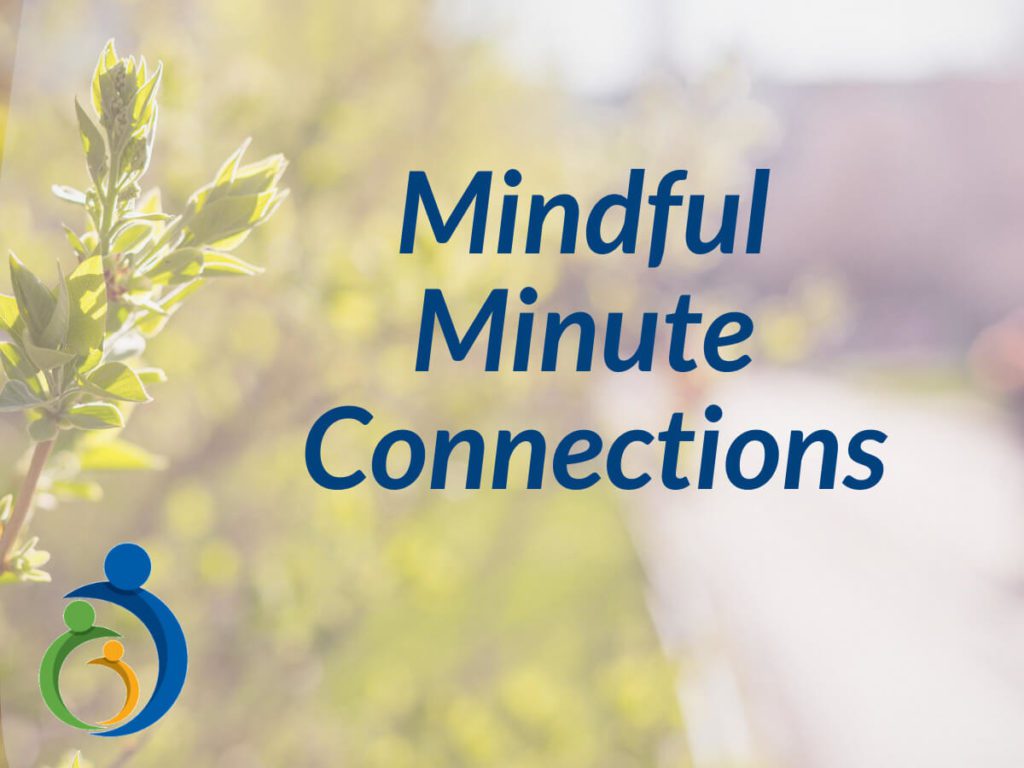
This blog post was written by Shanleigh Bechard, MS, LPC, NCC. Shanleigh is a mental health therapist at the Beloit Area Community Health Center and is currently accepting new clients.
Gratitude is a superpower
The holiday season is often a time for celebration, connection, warmth, and reflection. But for many, this time of year can stir up feelings of loneliness, grief, anxiety, or depression.
One antidote to these holiday blues is right under our noses, and already an integral part of the upcoming holidays: practicing gratitude. In recent decades, medical research has finally proven what spiritual and philosophical realms have known to be true for centuries: a grateful mind leads to a happy heart.
Harvard Medical School defines gratitude as, “a thankful appreciation for what an individual receives, whether tangible or intangible. With gratitude, people acknowledge the goodness in their lives … as a result, gratitude also helps people connect to something larger than themselves as individuals- whether to other people, nature, or a higher power.”
How does gratitude benefit us?
Research has consistently associated gratitude with improved psychological and physical well-being. Simply put, gratitude increases happiness, decreases depressive symptoms, and makes us feel good (Seligman et al., 2005). Gratitude is linked to lifted mood, improved sleep (!), decreased fatigue, increased feelings of self-efficacy, and enhanced spiritual well-being. Thus, gratitude is increasingly recognized as an effective treatment for individuals with mental health or even medical conditions (Mills et al., 2015).
Gratitude even changes brain activity, increasing serotonin and dopamine production, acting as a natural antidepressant. Thoughts of gratitude are correlated with activity in the anterior cingulate cortex and medial prefrontal cortex, which is associated with moral cognition, value judgment, and positive emotions (Fox et al., 2015).
Gratitude can even support and nurture our relationships, leading us to engage in increased prosocial behaviors such as helping others (Bartlett & DeSteno, 2006). When we express gratitude to the people in our lives, oxytocin secretion is increased, which results in increased relationship satisfaction, improved perceived partner responsiveness, and heightened positive emotions (particularly love) (Algoe & Way, 2014).
Adding gratitude to your daily life
If you are not yet convinced to adopt a daily gratitude practice, consider also it can be practiced anytime anywhere, impact can be felt immediately, and there are essentially no risks or side effects. Further, gratitude is brief, simple, and costs nothing.
Here are nine suggestions for cultivating an attitude of gratitude today.
- Be present. We cannot experience gratitude and all its benefits without waking up the present moment. Gratitude is easy during exciting moments of achievement or celebration but is arguably more important during routine everyday moments. Finding small things to mindfully appreciate throughout our everyday lives is the goal. Perhaps it is a mindful cup of tea, falling leaves, a child’s laughter, or the calming feeling of a full breath. These are the quiet moments to pause and feel grateful for.
- Pay attention to details. What specifically about a cup of coffee do we appreciate? Is it waking up to the comforting sound of the coffee pot? Maybe the smell is a reminder of happy memories, or the warmth feels soothing on a cool morning. Attention to details challenges us to really pause and experience them fully.
- Detach gratitude from material things. Consumerism teaches us to only feel grateful in response to receiving material items. Of course, these are opportunities for appreciation, but this belief is limiting, encourages us to focus on what we do not have, and can leave us feeling empty and disappointed. The ability to feel gratitude outside of material things opens endless opportunities in our everyday lives. Focusing on experiences, relationships, feelings, thoughts, and small moments can be a helpful start.
- Express appreciation. Telling the people in our lives what we appreciate about them can improve our relationships. Who knew a simple and sincere, “thank you” could feel so good? Personalized phone calls, texts, thank you cards can have significant impact.
- Be kind. Performing acts of kindness for others spreads the love all around. Think small acts like holding the door, smiling at a stranger, or helping someone carry their groceries.
- Keep a gratitude journal. Starting the morning with this exercise can set the tone for the entire day. Before bed is another great option, as bedtime is often a time of worrying or anxiety. Holding our attention on thoughts of appreciation and thankfulness instead can create a more healthful sleep environment and can even help us fall asleep more quickly! Try 5-7 bullet points for a quick start.
- Awaken your inner child. Children have a way of reminding us of the beauty in everyday occurrences. Approaching our day with a childlike wonder, curiously observing ourselves and what is around us, allows us to experience small moments of delight and gratitude.
- Reframe negative thinking. Pay attention to the tone of our inner dialogue. Our thoughts have huge impact on how we feel. Shifting from, “why is this happening to me,” to “what is this teaching me?” creates space for appreciation, even in moments of difficulty.
- Practice. We often feel trapped in our feelings, waiting for happiness to materialize on its own rather than creating it ourselves. Only when we take responsibility for our feelings, can we have a sense of power and control over our lives. Daily gratitude practice is a superpower, perhaps the first step in intentionally building happiness and the life we want.
“This is a wonderful day. I have never seen this one before.”
Maya Angelou
References
- Algoe, S. B., & Way, B. M. (2014). Evidence for a role of the oxytocin system, indexed by genetic variation in CD38, in the social bonding effects of expressed gratitude. Social cognitive and affective neuroscience, 9(12), 1855-1861.
- Bartlett, M. Y., & DeSteno, D. (2006). Gratitude and prosocial behavior helping when it costs you. Psychological science, 17(4), 319-325. https://journals.sagepub.com/doi/abs/10.1111/j.1467-9280.2006.01705.x
- Fox, G.R., Kaplan, J., Damasio, H., & Damasio, A. (2015) Neural correlates of gratitude. Frontiers in psychology, 6. https://www.frontiersin.org/articles/10.3389/fpsyg.2015.01491/full
- Mills, P. J., Redwine, L., Wilson, K., Pung, M. A., Chinh, K., Greenberg, B. H., … & Chopra, D. (2015), The role of gratitude in spiritual well-being in asymptomatic heart failure patients. Spirituality in Clinical Practice, 2(1), 5. https://www.apa.org/pubs/journals/releases/scp-0000050.pdf
- Seligman, M. E., Steen, T. A., Park, N., & Peterson, C. (2005). Positive psychology progress: empirical validation of interventions. American psychologist, 60 (5), 410. https://pubmed.ncbi.nlm.nih.gov/16045394/













